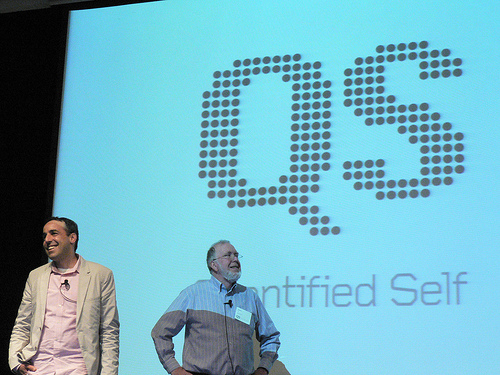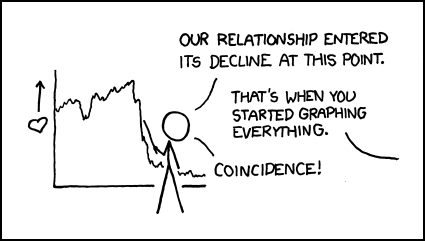
Last Thursday I attended the Quantified Self meetup in San Francisco. It’s become one my favorites since moving to San Francisco this year, I suppose because the combination of “quantified” and “self” matches my passion for understanding the relationship between us and technology.
If you haven’t heard of it, Quantified Self is about the growing phenomena of people measuring things about themselves, often with technological help, and then tracking and analyzing the results. You have already heard of people who record their weight each day in an effort to shed pounds. That’s quantified self. You know athletes that log their performance to see improvement. That’s quantified self. You know people who count how many days they’ve been sober. That too is quantified self.
Of course, people track and record much more. I’ve given two talks at QS meetups, one about my lifelong habit of journaling (I say “journaling” because “diary writing” is somehow connected with young girls writing “Dear diary” at the top of each page.), and the second one about a program I wrote that takes my picture every hour that I’m at my computer. It’s 7:59pm as I write this, so I know my picture will be taken any second. Good thing I’m being productive!
But why? And what does it mean?
I was thinking again tonight about how big thinkers from Freud to McLuhan have considered technology as an extension of our bodies. A car is a extension of walking, a television is an extension of our sight, and a phone an extension of our voice and ears.
But what is tracking? I would say that it’s an extension of our sense of well-being. There are 17 people in the United States who have “congenital insensitivity to pain with anhidrosis”, a disorder where the patient cannot feel pain. By all accounts, it is a horrible condition. Think about how you accidentally bit your tongue when numbed from the dentist. Now imagine that your whole body was like that, and think of all the damage you would do to yourself. Our sense of pain, from stomachaches to ankle sprains, is critically important to our well-being.
We use technology to detect Bad Things that don’t cause us pain: high blood pressure, cholesterol, early-stage tumors, hormonal imbalances. Self-tracking extends this over long time scales. It’s not bad if I miss a day flossing, but it’s bad if I lose the habit.
And it’s not just about pain and Bad Things, but also about reaching goals, self-satisfaction, and making an impact. Watching my improvement in road biking this year (via Strava) has brought me a lot of pleasure (in addition to getting me in shape.) Writing every day has made me at least a faster typist, possibly a better writer, and definitely helped me process the events of my life. Daily meditation has brought more calm, especially through rough spots that I know would otherwise have cast me into depression.
So yes, tracking can be geeky or self-obsessive. But the fact is that it works. Hell, my examples have only been about my health and mental well-being. Consider something like the website Crohnology, where sufferers of Crohns disease are working together, tracking what works and doesn’t work for treating their disease. This is tracking helping not only the tracker, but everyone.
(Photo credit, Mark Smith on Flickr.)
